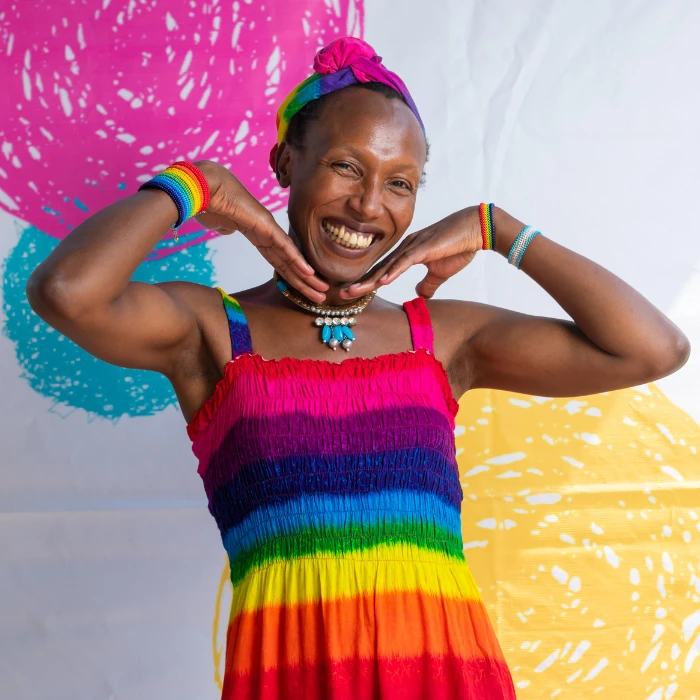Queer people deserve to enjoy the same rights and privileges as everyone else, although we see time and time again their rights being eroded by conservative politicians. In this episode, join Kerubo and Youlendree as they have an open and thoughtful conversation with Arya Jeipea Karijo, a transgender woman and a lesbian who views life through a young, African feminist lens. If you want to understand more about the LGBTQIA+ community and how decolonization of the internet and online spaces influences their wellbeing, this is the ideal episode for you.
The availability and accessibility of information online about queer people, especially queer African activists, ancestors and traditions can vary significantly depending on factors like geographical location, cultural context and internet surveillance and censorship. While the internet has undoubtedly provided a platform for sharing and disseminating information, it’s not immune to limitations and biases.
In the past, oppressed groups – including the queer community – have had a challenging time recording their history and getting access to reliable information. This is especially true for young, queer Africans who may have difficulty locating thorough and culturally contextual resources that accurately reflect their personal experiences. The absence of information and historical records can be attributed to several factors such as: social stigma and discrimination, cultural taboos and lack of representation.
According to Arya, there are measures that can be taken to preserve historical information on the internet and social spaces for young queer Africans to access:
Documentation and archiving which involves collecting oral histories, digitizing existing materials, and establishing community-led initiatives to record and safeguard historical information are some of the options she provides. Arya affirms that the online space can and should function as a queer utopia – a space that is community-led and where cultural sensitivity, participation and queer freedom is enacted and embodied.

